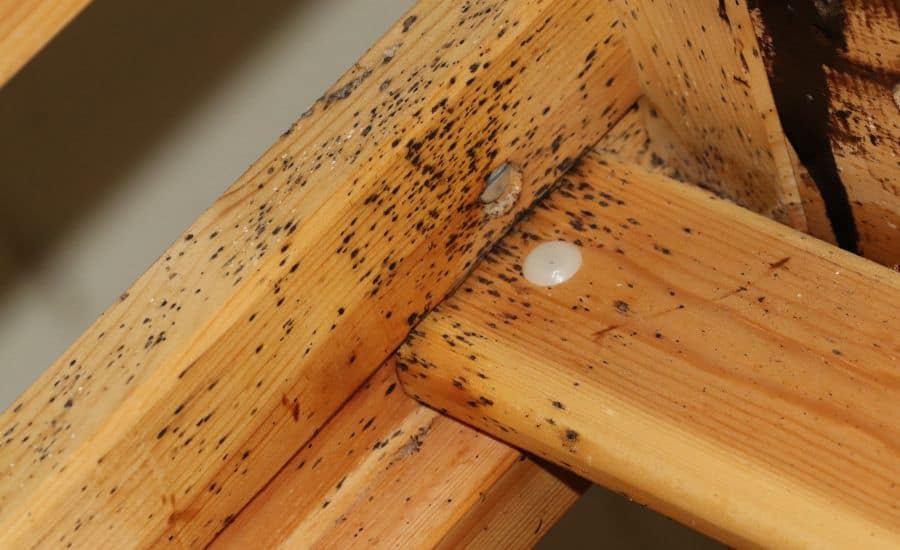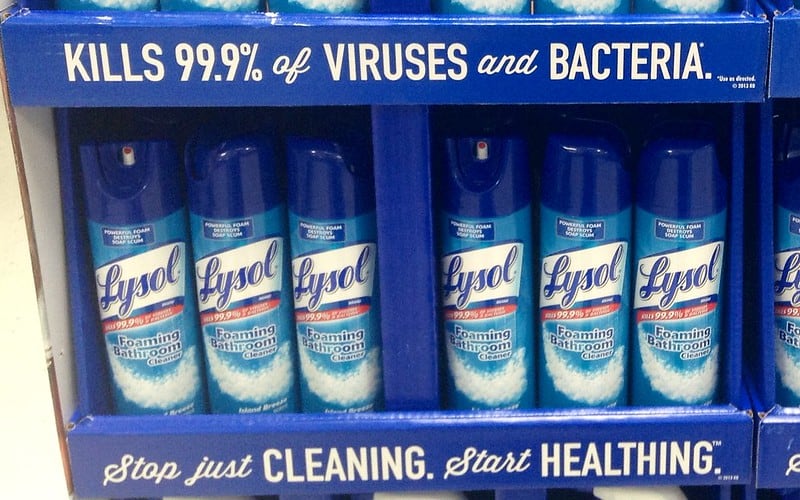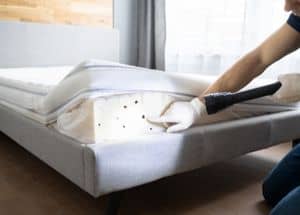I have made this guide to help you find out “Does Lysol kill bed bugs?” and how effective this product is at dealing with them. You will also learn about its advantages and disadvantages.
I will tell you about the best methods that you can use to kill bed bugs with Lysol and explain why I don’t recommend using it. If you are interested in various Lysol alternatives, keep on reading: I will discuss them too.
[wpsm_titlebox title=”How to Deal With Bed Bugs?” style=”main”]
If you are tired of bed bugs in your home, you might be glad to know that Lysol kills bed bugs. Although it helps to cope even with bedbug eggs, I don’t recommend using it because there are a lot of specs you have to be aware of to use it correctly. Otherwise, you risk material damage.
[/wpsm_titlebox]
Complete Guide on Lysol and Bed Bug Control
Bed bugs are a fairly common problem in modern houses. They might appear if you visit a second-hand store, with many different items that you end up taking home. To cope with them, people often use Lysol. If you are interested in whether Lysol spray kills bed bugs, this is an effective solution to kill pests instantly.

For best results, you have to spray it directly on insects. Besides, Lysol kills bed bug eggs, so it can help you to cope with all bugs to the last. Its effectiveness lies in the fact that you can use it on any hard surface, be it furniture or cracks where bed bugs can hide.
What is Lysol and how does it work?
Lysol is a parting and disinfecting agent that helps you neutralize 99.9% of bacteria. You can use it on any surface in your home, be it hard or soft. This cleaning agent has been used since the early 19th century. It was first introduced in Germany in 1889, but its structure contained harmful chemicals such as benzalkonium chloride, which is highly toxic to organisms. Its composition includes:
- Ethanol;
- Isopropyl alcohol;
- Lactic acid as an antiseptic;
- Hydrogen peroxide.
There are also many other ingredients, but I decided to mention the most important ones so as not to confuse you with the terminology. Lysol is often used as a disinfectant for bed bugs: Due to its antibacterial properties, bed bugs won’t be able to survive, as well as their eggs. This is the encouraging answer to those who keep asking “Does disinfectant spray kill bed bugs?”

Lysol pros
Lysol is an easy-to-use product that can help you deal with bugs anywhere. All you need to do is spray it where you find bed bugs. You can also use it on any surface, regardless of whether it is hard or soft.
- In addition to killing bedbugs, you can eliminate 99.9% of bacteria, which means you can apply it as a disinfectant. It easily copes with fungus and mold: Lysol does not allow them to grow and prevents their appearance.
- With it, you can even deal with unpleasant odors, as many different scents are available. It is up to you to choose which flavor to choose.
Cons
Although it is an excellent and effective remedy for combating bed bugs and bacteria, at the same time, it can be harmful. When using it, you need to be especially careful and make sure your children and pets don’t contact the solution.
- If the spray comes into contact with food, kid’s toys, or any food containers, you have to soak them in water before using them again. Otherwise, it can lead to severe poisoning.
- For some users, its smell can be allergenic. If you are highly sensitive, it might be difficult for you to use it at home.
- To get maximum efficiency from it, you have to do everything according to the instructions. Ensure that the surface on which you spray Lysol does not dry earlier than necessary, and use the exact amount stated in the guidelines.
[su_youtube url=”https://youtu.be/4YEX6jW2Ctw”]
Safety of Lysol and its analogs
Lysol can help you deal with most types of bacteria, and it is safe if you use it correctly. It has chemicals that can harm people and animals. However, if you wash your hands and clothes thoroughly after spraying this cleaning agent, you will not get any harm from it. After using it, ventilate the room. These measures will help you cope both with bed bugs and bacteria and protect yourself.
You can also use various analogs that perform the same function, but take into account the reliability of Lysol. It is a well-known product that has earned popularity over the years. You can use other cleaning means such as hand soap or wipes with disinfectant properties. Tar soap is super effective at dealing with bed bugs. Though it has a pungent and rather unpleasant smell, it makes the pests die.
FAQ About Using Lysol Spray on Bed Bugs
I’ve already explained to you how to use Lysol and in which ways you can apply it. In the section below, I will also answer some questions people often ask about eliminating bed bugs with Lysol.
Does Lysol spray keep bed bugs away?
Lysol can help you deal with bed bugs, but I don’t recommend using it on bed linen as it quickly dries out. A dry spray can’t cope with bed bugs, so you will have to use it correctly for it to be effective against pets.
What cleaner can kill bed bugs?
You can use alternative products that contain sodium hypochlorite because this ingredient allows you to easily cope with bedbugs. It makes their immune system weak and causes their death. Insects get something like a fever, after which they won’t endure for long.
Does Lysol kill bed bugs in the mattress?
Yes, Lysol can cope with the bugs in the mattress, but you will require a large amount of spray to kill all the bugs. For Lysol to work effectively, you need to take care that the surface on which you spray it is constantly wet.
Lysol as Effective Bed Bug Eliminator
In the above guide, I have told you about the peculiarities of this cleaning agent and what kind of Lysol kills bed bugs. You have also learned about the pros you can take out of Lysol and the cons it has. Now you are aware of the danger it can cause to people and pets and can take preventive measures to avoid these pitfalls. I hope that this guide will help you get rid of bugs and eliminate a lot of bacteria in your home.
Have you found this guide informative? What was the most useful tip you have learned from it? Tell us about your experience with Lysol in the comments.
Also read:
References:
- Common Antiseptic Ingredients De-Energize Cells and Impair Hormone Response. Some Disinfectants Inhibit Cell Energy and Alter Reproduction: https://www.ucdavis.edu/news/common-antiseptic-ingredients-de-energize-cells-and-impair-hormone-response
- Ethanol: What Is It?: https://web.extension.illinois.edu/ethanol/default.cfm
- Infectious diseases. Types of Microbes. Bacteria: http://needtoknow.nas.edu/id/infection/microbe-types/bacteria/

